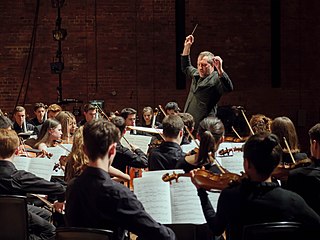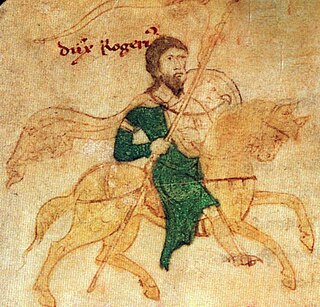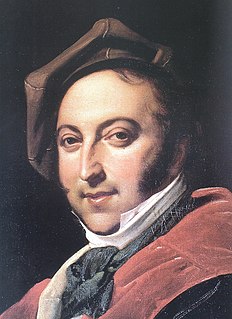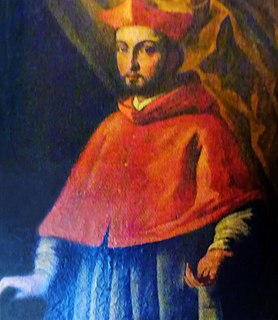Related Research Articles

Mignon is an 1866 opéra comique in three acts by Ambroise Thomas. The original French libretto was by Jules Barbier and Michel Carré, based on Goethe's 1795-96 novel Wilhelm Meisters Lehrjahre. The Italian version was translated by Giuseppe Zaffira. The opera is mentioned in James Joyce's "The Dead" (Dubliners) and Willa Cather's The Professor's House. Thomas's goddaughter Mignon Nevada was named after the main character.

Thomas Adès is a British composer, pianist and conductor. Five compositions by Adès received votes in the 2017 Classic Voice poll of the greatest works of art music since 2000: The Tempest (2004), Violin Concerto (2005), Tevot (2007), In Seven Days (2008), and Polaris (2010).

The Nose, Op. 15,, is Dmitri Shostakovich's first opera, a satirical work completed in 1928 based on Nikolai Gogol's 1836 story of the same name.

The Duchess of Malfi is a Jacobean revenge tragedy written by English dramatist John Webster in 1612–1613. It was first performed privately at the Blackfriars Theatre, then later to a larger audience at The Globe, in 1613–1614.

King Roger is an opera in three acts by Karol Szymanowski to a Polish libretto by the composer himself and Jarosław Iwaszkiewicz, the composer's cousin. The score was finished in 1924. The opera received its world premiere on 19 June 1926 at the Grand Theatre, Warsaw, with the cast including the composer's sister, the soprano Stanisława Korwin-Szymanowska, as Roxana.
Stephen Michael Harding Oliver was an English composer, best known for his operas.

John Lowin was an English actor.
The Tempest is an opera by English composer Thomas Adès with a libretto in English by Meredith Oakes based on the play The Tempest by William Shakespeare.

La Grande-Duchesse de Gérolstein is an opéra bouffe, in three acts and four tableaux by Jacques Offenbach to an original French libretto by Henri Meilhac and Ludovic Halévy. The story is a satirical critique of unthinking militarism and concerns a spoiled and tyrannical young Grand Duchess who learns that she cannot always get her way.

Cardillac, Op. 39, is an opera by Paul Hindemith in three acts and four scenes. Ferdinand Lion wrote the libretto based on characters from the short story Das Fräulein von Scuderi by E. T. A. Hoffmann.
Nancy Shade is an American spinto soprano, best known as a singing-actress. She made her formal debut as Leonora in Il trovatore, in Louisville, in 1967. In 1971, she made her first of many appearances at the New York City Opera, as Musetta in La bohème. She also sang there in Mefistofele, Madama Butterfly, Pagliacci, Susannah, and Die tote Stadt.

Maometto II is an 1820 opera in two acts by Gioachino Rossini to an Italian libretto by Cesare della Valle. Set in the 1470s during a time of war between the Turks and Venetians, the work was commissioned by the Teatro di San Carlo in Naples. Della Valle based his libretto on his earlier play Anna Erizo. The name of the title character, Maometto II, refers to the real-life Ottoman Sultan and conqueror of Constantinople Mehmed II, who lived from 1432 to 1481.
Richard Sharpe was an actor with the King's Men, the leading theatre troupe of its time and the company of William Shakespeare and Richard Burbage. Sharpe began his career as a boy player acting female roles, then switched to male roles in his young adulthood.

Griselda is a dramma per musica in three acts that was composed by Antonio Vivaldi. The opera uses a revised version of the 1701 Italian libretto by Apostolo Zeno that was based on Giovanni Boccaccio's The Decameron. The celebrated Venetian playwright Carlo Goldoni was hired to adapt the libretto for Vivaldi. The opera was first performed in Venice at the Teatro San Samuele on 18 May 1735.
Torsten Rasch is a German composer of contemporary classical music. He lives in Berlin, but has found moderate success in the UK.

Love Story is a musical written by Stephen Clark with music by Howard Goodall and lyrics by Stephen Clark and Goodall. It is inspired by Erich Segal's best-selling 1970 novel of the same name. Love Story transferred to the Duchess Theatre in the West End in December 2010 following a critically acclaimed sell-out season at the Chichester Festival Theatre.

Luigi d'Aragona (1474–1519) was an Italian Roman Catholic cardinal. He had a highly successful career in the church, but his memory is affected by the allegation that he ordered the murder of his own sister and two of her children.
Antonio Beccadelli of Bologna (c.1475-1513) was an Italian aristocrat, whose tragic love affair and secret marriage with Giovanna d'Aragona, Duchess of Amalfi, inspired several works of literature, most notably John Webster's The Duchess of Malfi and Lope de Vega's El mayordomo de la Duquesa Amalfi.
Sally Watts is a British film, television and stage actress whose career has spanned four decades and who is perhaps best remembered for playing Barbara in the sitcom Billy Liar (1973-74).
James Peyton Atherton Jr was an American tenor and artistic director.
References
- ↑ Glover, Jane, "Stephen Oliver" (December 1974). The Musical Times, 115 (1582): pp. 1042-1044.
- ↑ Caminer, Lesley, "Reports: Oxford" (January 1972). The Musical Times, 113 (1547): pp. 70-74.
- ↑ Annalyn Swan (4 September 1978). "A Duo of Duchesses". Time. Archived from the original on October 3, 2009. Retrieved 2007-09-14.
- ↑ The roles in this list are per the revised 1978 version